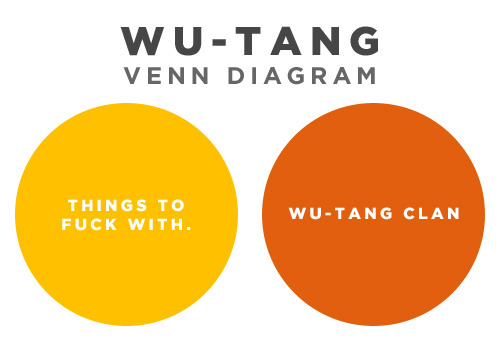META: On the origins of cumong
It is the offseason, a time for self-reflection, a time to spend our energy focusing on the things in life that are more important than football. If you're like me, there are a series of burning questions that begin to bubble up into your consciousness this time of year demanding to be dealt with. One of the recurring questions that has been simmering in my mind all season, and I write this piece assuming that I am not alone in this, has been: Why does Brian always say "Cumong, man?"
Whenever I would see this in print, I would wonder: is this how Brian pronounces "come on"? If so, why? Is this a thing people say? It seems to have caught on to the point where other people on the board use it as well. What is the origin of this spelling? Has the Michigan accent evolved since I left? I decided to do some research. I present to you what I have learned about the etymology of "cumong".
First, is this phrase mgoblog-specific? The evidence supports the notion that the term is indeed highly associated with this blog. There is actually an entry in the Urban Dictionary, which defines the term as "A word Alabama Crimson Tide fans use to exhort their team before a key play or belt out with a fist pump in celebration." The example given is CUMONG Tide, run the dad gum ball. Git this! However, as I will cover later, this entry was most likely added by an mgoblogger. Outside of that, there seems to be little to no usage of this word on the English-speaking web, with the exception of mgoblog, where its usage is frequent.
How do we characterize this phenomenon linguistically? The word is an apparently intentional misspelling of "come on". It is a kind of metaplasmus, but more specifically it appears to be a version of sensational spelling, in which a word is deliberately misspelled for effect. Examples of sensational spelling include "Froot Loops" and "Led Zeppelin".
Phonologically, this spelling portrays a shift in place of articulation of the final consonant of "come on," moving it from an alveolar nasal to a velar nasal. In other words, the contact between the tongue and the roof of the mouth simply moves further back when producing this variation.
Historically, on this site the first usage came on November 14th, 2012 in this post describing the Michigan-Northwestern football game. In that post, Brian writes:
Git R Done, for values of R that equal racism. If you don't follow me on twitter you missed the saga of the Larry The Cable Guy clan in my immediate vicinity, a group of redneck yahoos that said a lot of things like "LEZ GO CUMONG" and "GIT EM CUMONG," which was annoying when they did that really loudly after a four yard run--now my hopes are all up and it's second and six--but mostly harmless.
I tracked down that original series of tweets. I present to you the first time the phrase "cumong" was used in mgoblog history:
they cloned larry the cable guy and put four of them behind me
— mgoblog (@mgoblog) November 10, 2012
send help
— mgoblog (@mgoblog) November 10, 2012
LEZ GO CUMONG
— mgoblog (@mgoblog) November 10, 2012
Note that the Urban Dictionary entry, which is the only known instance of this phrase on the web outside of mgoblog, was added on November 15th, 2012, one day after Brian made his post highliting the term. This timing strongly suggests that it is not an independent phenomenon. After the initial Nov 15th post, it appeared again over the next couple of days, first in the defensive UFR as a figure caption and then in the offensive UFR. The phrase picked up steam in 2013 and by October of 2014 became an actual tag on the site.
EDIT: By popular demand, a chart! This is number of unique google results by month on the mgoblog site for the word cumong. Notice that there was a sizable jump in its popularity this football season:

In light of the information that spelling of this phrase was intended to portray the dialect of several "redneck yahoo" fans, we can re-evaluate its literary significance. It seems now that the phrase is in fact a kind of eye dialect, a misspelling often used to convey the ignorance of the speaker, even though the spelling may correspond to how the word is generally pronounced. This is the same device Dickens used to convey the way his uneducated characters spoke, and was a common feature in Mark Twain's writing. (That said, I can find no academic work that confirms the substitution of the nasal alveolar with the velar consonant in dialects from the American South).
I asked Brian to comment on this, and he confirmed that the phrase indeed originated from the a group of Larry the Cable Guys sitting around him during that game. I hope you've enjoyed this foray in to mgoblog history and culture, and that I have helped to shed some light on a question that was on all of our minds.
January 30th, 2015 at 6:53 PM ^
tl;dr
but who cares? i mean, cumong maaan.
January 31st, 2015 at 10:54 PM ^
your schtick has gotten old fast
January 30th, 2015 at 6:53 PM ^
January 30th, 2015 at 9:10 PM ^
"Idle hands are the tool of the Meyer".
January 30th, 2015 at 7:23 PM ^
Let me buy you a beer man! You really, really need a beer.
January 30th, 2015 at 6:56 PM ^
January 30th, 2015 at 7:30 PM ^
I hate that people think this. Cris Carter blatantly stole this bit from Ed Lover. Same premise, just usually directed at somebody in hip hop. Definitely NSFW but way better than the derivative trash the WWL puts out.
January 30th, 2015 at 6:56 PM ^
Plus ... offseason? It's not offseason until Harbaugh says it's offseason.
January 30th, 2015 at 6:57 PM ^
lol seriously. plus it's a week from signing day, our superbowl the last 7 years!
January 30th, 2015 at 6:58 PM ^
If this post had a chart it would literally be the most MGoBlog thing possible.
January 30th, 2015 at 7:29 PM ^
was a major influence in Mastercard.
January 30th, 2015 at 7:33 PM ^
There was one in black and white and one with shiny colors. I thought this one would brighten up everyone's day.
January 30th, 2015 at 8:25 PM ^
Who has the time to make a chart for something like this?
January 30th, 2015 at 7:00 PM ^
January 30th, 2015 at 7:04 PM ^
January 30th, 2015 at 7:11 PM ^
Nope, you are wrong.
You are the only person in the world that has this simmering in their mind.
January 30th, 2015 at 8:30 PM ^
I've wondered the same. I generally knew that Brian started using it, then one user here who shall not be named began using it (as he does a lot of Brian's pet phrases). It has mildly annoyed me ever since.
January 30th, 2015 at 7:12 PM ^
I dig. But as JGB pointed out, it does need a chart.
January 30th, 2015 at 8:48 PM ^
Chart added for completeness.
January 30th, 2015 at 8:54 PM ^
January 30th, 2015 at 7:15 PM ^
January 30th, 2015 at 7:15 PM ^
I had always assumed that this was some obscure way of saying "cumin" and took it has a cue to use more of it in marinades, chili and other applications. I am glad to find out I am wrong, but sad to find out that the chicken currently marinating in the fridge will have an...interesting flavor when I grill it tomorrow.
January 30th, 2015 at 7:16 PM ^
Finally I can sleep tonight.
All that is left to figure out is why one human yawning causes another to, and I can die content.
January 30th, 2015 at 7:27 PM ^
Sent from MGoBlog HD for iPhone & iPad
January 30th, 2015 at 7:34 PM ^
That seems counterintuitive. I mean, violent tendencies have been observed in apes and are obviously well-established in humans--so I would think that selection pressures would disfavor groups that all sleep simultaneously vs. groups that have members stay awake to guard against threats.
January 30th, 2015 at 7:58 PM ^
I think part of it is you want everyone sleeping at the same time so no is awake boning your partner/killing you offspring
January 30th, 2015 at 8:39 PM ^
Sent from MGoBlog HD for iPhone & iPad
January 30th, 2015 at 9:10 PM ^
Sent from MGoBlog HD for iPhone & iPad
February 1st, 2015 at 9:51 AM ^
Late to the party, but in primates yawning is thought to be an arousal reflex (it is not a signal that it's time to go to sleep). The baring of teeth also signifies dominance and is generally led by the alpha male. There is the thought that this also synchronizes circadian rhythms to the alpha.
February 6th, 2015 at 6:57 PM ^
There was a study recently saying that contagious yawning is related to empathy, why? Dunno, but people and animals with empathy will contagiously yawn and those without will not...Though I just googled it and saw another study saying 'maybe not, we still dont know wtf is going on,' though it didn't sound like a very good study.
January 30th, 2015 at 7:22 PM ^
You did a helluva job researching this.
January 30th, 2015 at 7:23 PM ^
Sent from MGoBlog HD for iPhone & iPad
January 30th, 2015 at 7:30 PM ^
Prolly
January 30th, 2015 at 7:29 PM ^
January 30th, 2015 at 8:45 PM ^
January 30th, 2015 at 8:51 PM ^
January 30th, 2015 at 10:53 PM ^
February 1st, 2015 at 1:52 AM ^
Bingo! This is why the two hour car ride to grandmas house takes forever in the mind of a five year old.
February 1st, 2015 at 9:56 AM ^
As noted above, I had heard the explanation of the relative nature of time as we age as the reason for why things seem to go faster as we get older.
I relayed that explanation to a friend of mine who's a bit older than me when the question arose. As he is perhaps more wise, he proffered a different explanation which I will paraphrase: "Have you ever seen water go down the drain? It swirls faster as you get closer to the bottom."
As I get older, I'm thinking it's more the latter than the former.
January 30th, 2015 at 8:56 PM ^
January 30th, 2015 at 9:05 PM ^
"At Least 500 Words and A Chart to Illustrate Why I Have No Life"
January 30th, 2015 at 9:08 PM ^
January 30th, 2015 at 9:17 PM ^
Well, you’re not going to see something like this at Eleven Warriors!
This is hilarious and one of the many reasons I love MGoBlog.
Sure glad you added the bar chart highlighting usage over time, but don't you think it needs a flow diagram to illustrate its evolution from November 1012 to now?





Comments